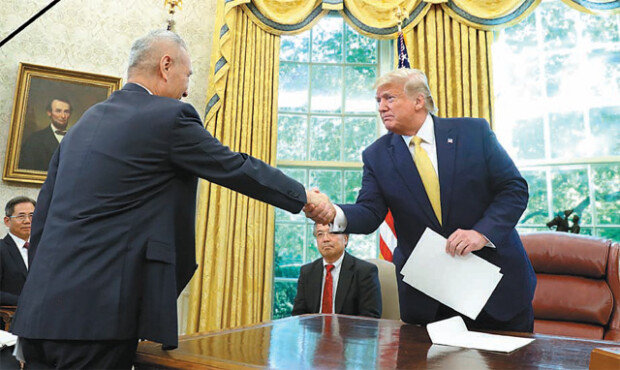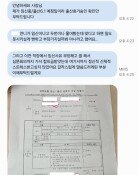The clash between U.S. and China threatens East Asia
The clash between U.S. and China threatens East Asia
Posted November. 13, 2019 07:42,
Updated November. 13, 2019 07:42

Three years of Trump’s presidency has fragmented the global free trade order, leaving it on the brink of collapse. If the current global order falls down, a chaos, recessions, even violence and war would ensue.
Since last March when U.S. President Donald Trump started pressuring it, China has tried to stabilize its economic relations with the United States through dialogue and cooperation. However, it is now realizing that the trade clash has evolved into a political, legal and media war, with more than 120 Chinese science and technology firms and research institutions including Huawei facing regulations and higher tariffs.
Beijing’s strategy is to make conditional offers to Washington. Meanwhile, it will ease regulations on foreign investment and reduce tax revenues, transforming the fundamentals of its economy the way it wants, not the way the United States wants. China will agree to protect intellectual property, stabilize the exchange rate and buy more agriculture, oil and natural gas from the United States, only if Washington phases out tariffs on Chinese products.
Even after the phase one trade deal, 25 percent tariffs will remain on 400 billion U.S. dollars of Chinese products, which Beijing is unlikely to accept considering its political situation at home.
Unfortunately for China, there is a general and bipartisan consensus in Washington on the strategic confrontation with Beijing, meaning the ongoing science and technology war will continue even if they strike a phase one deal. In addition, fair and free trade will continually come under attack due to the political climate in the United States, prolonging the conflict between the two nations.
The clash between the two economic powers is already affecting the regional economy. If they get stuck in the war and do not bring back the world order, it will widen the gap between security and prosperity. The Trump administration’s continued push for anti-globalization policies can also threaten the order in East Asia.
It is a difficult time for China given that the nation faces pressure from the United States and suffers from the lack of a growth engine at home, and yet has to maintain the momentum it has built and expand its influence. This is the toughest challenge it has ever faced for the past 40 years. If there is one takeaway for Beijing in all this mayhem caused by Washington’s shift to anti-free trade, it is that its rise on the global stage is a source of pride, but it can also pose a risk.
Headline News
- N. Korea launches cyberattacks on S. Korea's defense companies
- Major university hospital professors consider a day off each week
- Italy suffers from fiscal deficits from ‘Super Bonus’ scheme
- Inter Milan secures 20th Serie A title, surpassing AC Milan
- Ruling and opposition prioritize spending amid tax revenue shortfalls







